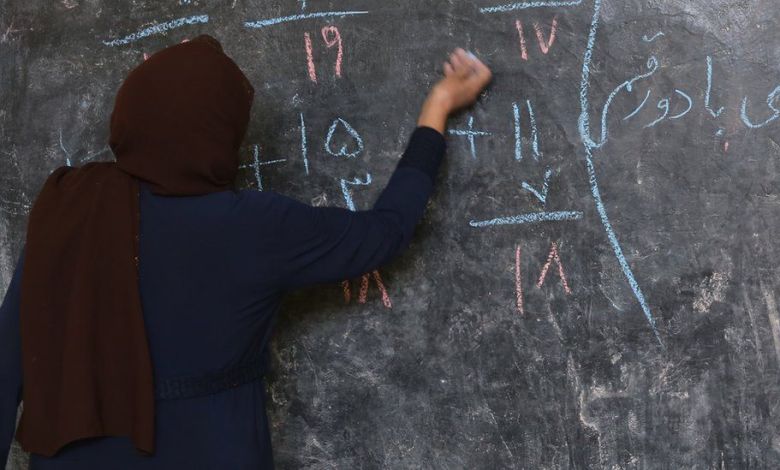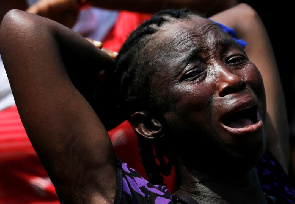Girls Excluded As Afghan Secondary Schools Reopen


The Taliban have excluded girls from Afghan secondary schools, after they ordered only boys and male teachers to return to the classroom.
A statement from the Islamist group saying secondary classes would resume made no mention of girls or women.
One Afghan schoolgirl told the BBC she was devastated. “Everything looks very dark,” she said.
Despite Taliban promises it is the latest sign Afghanistan is returning to the harsh rule of the 1990s.
In another development, on Friday the Taliban appeared to have shut down the women’s affairs ministry and replaced it with a department that once enforced strict religious doctrines.
During their rule between 1996 and 2001, the Ministry for Propagation of Virtue and Prevention of Vice was responsible for deploying so-called morality police on to the streets to enforce the Taliban’s strict interpretation of Islamic religious law, known as Sharia.
‘I am so worried about my future’
A statement issued ahead of Afghan schools reopening on Saturday said: “All male teachers and students should attend their educational institutions.”
Secondary schools are usually for students aged between 13 and 18. Most schools are also segregated, which would make it easy for the Taliban to close down schools for girls.
“I am so worried about my future,” said an Afghan schoolgirl, who had hoped to be a lawyer.
“Everything looks very dark. Every day I wake up and ask myself why I am alive? Should I stay at home and wait for someone to knock on the door and ask me to marry him? Is this the purpose of being a woman?”
A former spokesperson from the Afghan Education Ministry, Nororya Nizhat, said it was a setback.
“This reminds everyone of what the Taliban did in the 90s. We ended up with a generation of illiterate and non-educated women,” she said.
Earlier this week, the Taliban announced that women would be allowed to study at universities, but they would not be able to do so alongside men and would face a new dress code.
Some suggested the new rules would exclude women from education because the universities do not have the resources to provide separate classes.
Barring girls from secondary schools will also mean none will be able to go on to further education.
Since the Taliban were removed from power in 2001, enormous progress has been made in improving Afghanistan’s education enrolments and literacy rates – especially for girls and women.
The number of girls in primary schools increased from almost zero to 2.5 million, while the female literacy rate nearly doubled in a decade to 30%. However, many of the gains have been made in cities.
Shortly after taking power the Taliban said the rights of women in Afghanistan would be respected “within the framework of Islamic law”.
Source: BBC







